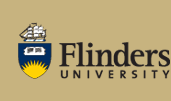
To be read in conjunction with the program of study requirements for the Bachelor of Science (Honours) – 4 years.
The Aquaculture Specialisation is offered as part of the Bachelor of Science (Honours) and requires four years of full-time study (or the equivalent part-time). The Specialisation is offered by the School of Biological Sciences, within the Faculty of Science and Engineering.
Specialisations have different admission requirements to other programs of study available in the Bachelor of Science (Honours). In order to undertake a Specialisation students must be admitted to the Specialisation program.
There is an alternative 1 year program for the Bachelor of Science (Honours) for students who have successfully completed a Bachelor of Science.
The minimum requirements for consideration for entry to all undergraduate courses are specified in detail in the University Entry Requirements.
The course aims to provide students with a broad-based foundation in science together with specialisation in aquaculture. This course enables graduates to develop practical and theoretical skills for a career in the aquaculture industry. Specifically, the graduates will gain a range of transferable research, analytical and communication skills including the capacity to:
On completion of their degree, students will have developed a comprehensive and well-founded knowledge in aquaculture and a range of transferable professional skills.
Graduates of the course are expected to be able to:
To qualify for the Bachelor of Science (Honours) (Aquaculture) specialisation a student must complete 144 units, with a grade of P or NGP or better in each topic, according to the Bachelor of Science (Honours) – 4 years program of study. The program of study for the specialisation is detailed below:
18 units comprising:
BIOL1101 Evolution of Biological Diversity (4.5 units)
BIOL1102 Molecular Basis of Life (4.5 units)
BIOL1201 Introduction to Aquaculture## (4.5 units)
plus one of:
CHEM1101 Chemistry 1A## (4.5 units)
CHEM1201 Introduction to Chemistry A## (4.5 units)
##Cognate studies
27 units comprising:
BIOL2701 Experimental Design and Statistics for Biology (4.5 units)
BIOL2702 Genetics, Evolution and Biodiversity (4.5 units)
BIOL2711 Ecology (4.5 units)
BIOL2712 Animal Diversity (4.5 units)
BIOL2731 Aquaculture Nutrition and Water Quality (4.5 units)
BIOL2732 Aquaculture Systems and Technology (4.5 units)
27 units comprising:
BIOL2722 Disease and Immunology (4.5 units)
BIOL3711 Plant and Algal Diversity (4.5 units)
BIOL3731 Aquaculture Reproduction (4.5 units)
BIOL3732 Aquaculture Health and Product Quality (4.5 units)
BUSN2026 Entrepreneurship and Small Business (4.5 units)
plus one of:
BIOL3702 Marine and Freshwater Biology (4.5 units)
BIOL3712 Integrative Physiology of Animals and Plants (4.5 units)
BUSN3026 Business Planning for New Ventures (4.5 units)
36 units comprising:
BIOL4700A Biology Honours Research Project (4.5/22.5 units)
BIOL4700B Biology Honours Research Project (4.5/22.5 units)
BIOL4700C Biology Honours Research Project (4.5/22.5 units)
BIOL4700D Biology Honours Research Project (4.5/22.5 units)
BIOL4700E Biology Honours Research Project (4.5/22.5 units)
BIOL4710 Honours Critical Readings (4.5 units)
BIOL4720 Honours Grant Writing Skills (4.5 units)
BIOL4730 Honours Scientific Methods and Data Presentation (4.5 units)
The Bachelor of Science (Honours) (Aquaculture) may also be studied in a combined/double degrees program with the:
CRICOS Provider: 00114A | Updated: 16 Aug, 2010